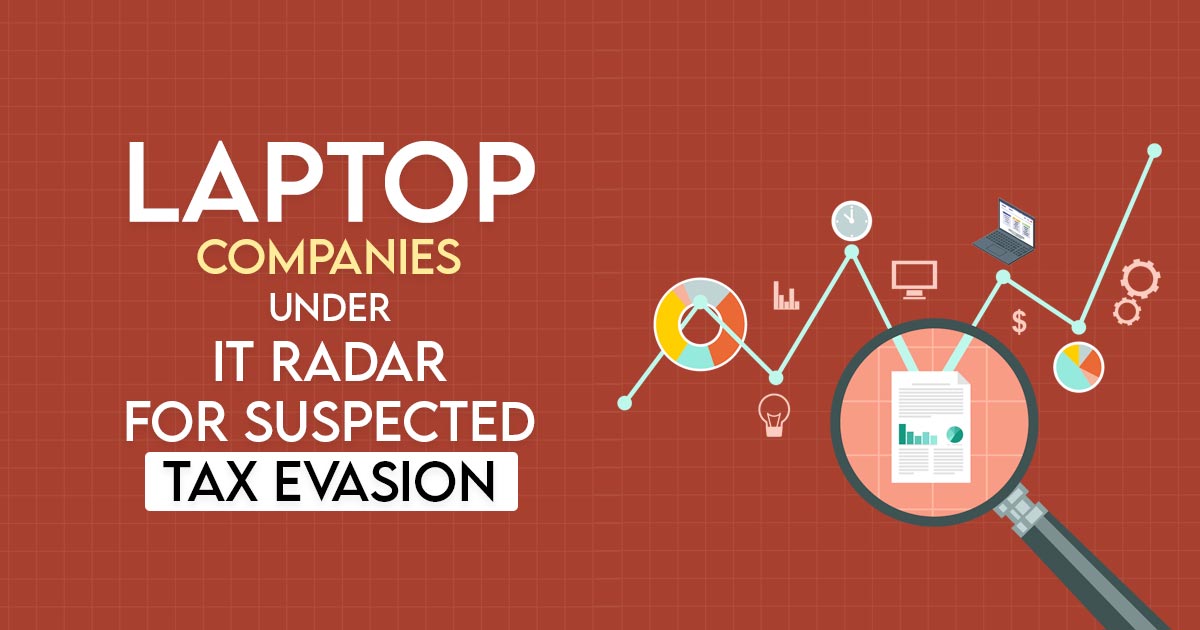
Following investigations into mobile phone manufacturers, laptop companies have come under scrutiny by tax authorities. According to credible sources, both income tax and indirect tax enforcement units are accusing laptop companies of evading taxes.
Insiders familiar with the matter have revealed that intelligence agencies, including the Directorate of Revenue Intelligence (DRI), Directorate General of GST Intelligence (DGGI), and the Income Tax department, are currently conducting investigations into the alleged tax evasion by laptop companies.
These investigations, carried out by various revenue department agencies, are centred on suspected tax evasion stemming from violations of the country of origin regulations, inadequate value addition concerning relevant Free Trade Agreements (FTAs), and evasion through the undervaluation of computer equipment and peripherals. The GST wing also claims that tax evasion is occurring due to the undervaluation of products sold in the market.
Moreover, the Directorate of Revenue Intelligence (DRI) and the Directorate General of GST Intelligence (DGGI) are presently scrutinizing numerous bills of entry submitted by various importers at multiple ports. Concurrently, the Income Tax department is alleging income underreporting based on information obtained from the DRI and DGGI.
A recent illustration of this investigation involves the income tax actions taken against the IT hardware manufacturer Lenovo. On September 27, the income tax department carried out searches at Lenovo’s facilities based on intelligence reports. This operation encompassed the company itself and some of its affiliated entities.
The search was executed at Lenovo’s establishments in Gurugram, located in Haryana, as well as Bengaluru, the capital city of Karnataka.
Read Also: CBDT: Insurance Cos and Intermediaries Evade 30K Crores in Income Tax
Experts believe that such actions can often perplex the industry, but it is crucial to apprehend tax evaders in a manner that does not harm legitimate businesses.
The ongoing investigation led by DRI and DGGI concerning laptop companies may reveal potential instances of tax evasion, which the scrutinized company may have engaged in through the undervaluation of imported goods or deliberate misrepresentation in the bill of entry to reduce the payable customs duties.
Interestingly, even though GST evasion is not officially classified as a scheduled offence under the Prevention of Money Laundering Act (PMLA), the ongoing tax evasion investigation might open the door to more stringent anti-money laundering proceedings. This is because Section 135 of the Customs Act falls within the scope of scheduled offences under PMLA.
Furthermore, it is worth noting that such investigations could also potentially impact Free Trade Agreements (FTAs).
FTAs offer the privilege of importing goods into India at reduced or exempt rates, but they come with specific conditions, including the requirement that the products originate from specified countries or undergo a defined level of value addition. Importers are responsible for demonstrating their compliance with the conditions outlined in the FTA notifications
Important: Current GST Rates on Computer & Laptops with Accessories
Importers benefiting from the FTA notifications established under the Indian Customs Act will be obligated to furnish all the requisite evidence, which includes proof of the country of origin and the minimum value addition, to the investigative agencies. The government places significant emphasis on bilateral FTA agreements and is engaged in discussions with various nations to implement them. It will be intriguing to observe how these investigations could impact FTAs currently under negotiation with other countries. Additionally, the government is contemplating the issuance of licenses for laptop imports into India.
Customs authorities may raise concerns, primarily because a substantial portion of these imports involves transactions between related parties, making valuation a pivotal factor in determining the applicable duty. As explained by a tax expert who has previously advocated on behalf of importers before both the Bombay High Court and the Supreme Court to substantiate the accuracy of the declared value by importers.
Disputes often revolve around whether incurred expenses should be included in the valuation, and discussions frequently centre on the “condition of sale” when addressing valuation issues, as described by a tax expert sharing their experience in a matter before the Apex Court, which resulted in a favourable outcome for the Indian importer.